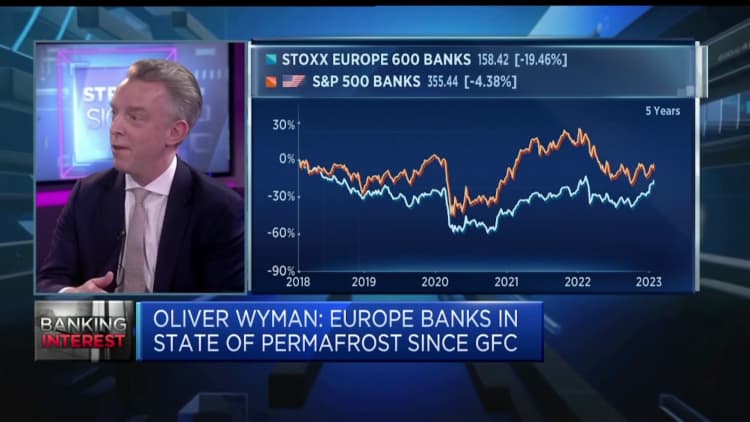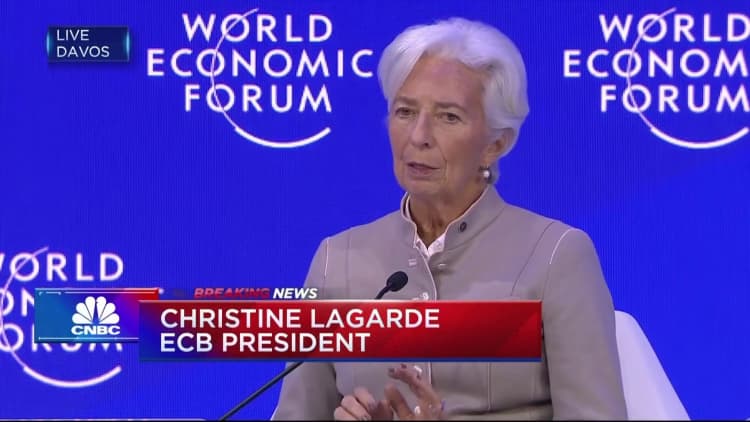
Inflation in the euro zone eased in the last two months of 2022 but the economic indicator is still well-above the 2% mandate of the European Central Bank.
Jeff Greenberg | Universal Images Group | Getty Images
Inflation in the euro zone dropped for a third consecutive month in January on the back of a significant fall in energy costs.
Headline inflation in the euro zone came in at 8.5% in January, according to preliminary data released Wednesday. In December, the rate was recorded at 9.2%.
Energy remained the biggest cost driver in January, but once more softened from previous levels. Energy charges fell to an estimated 17.2% in January, down from 25.5% in December. However, food costs rose slightly from 13.8% in December to 14.1% in January.
The 20-member region has gone through substantial price increases in 2022, after Russia’s invasion of Ukraine pushed up energy and food costs across the bloc. However, the latest data provides further evidence that inflation has started to ease.
Core inflation, which strips out energy and food costs, stood at 5.2% in December — in line with the previous month.
“The key point is that core inflation was unchanged at a record 5.2% so the ECB will remain very hawkish,” Jack Allen-Reynolds, senior Europe economist at Capital Economics, said via email.
The performance of Europe’s main index over the last 12 months.
“The apparent decline in euro-zone headline inflation in January, from 9.2% in December to 8.5%, came as a big surprise. But we wouldn’t be shocked if it was revised up significantly when the final euro-zone data are released on 23rd February,” he added, citing delays in receiving official data from Germany.
What it means
The economic indicator is being closely watched ahead of a new interest rate decision due out on Thursday from the European Central Bank. Higher inflation has led the ECB to raise rates four times in 2022, and market expectations point to at least two other increases in the coming meetings.
“The upshot is that the larger-than-expected drop in headline inflation won’t deter the ECB from raising interest rates by 50 basis points tomorrow,” Allen-Reynolds said.
In a note to clients last week, Morgan Stanley had said that “a 50 basis point hike in February seems like a done deal, with the Council discussion to centre on the size of rate hikes in March and beyond.”
Market participants will be looking for clues on the central bank’s next steps. The main ECB rate is currently at 2%, but market expectations suggest an increase to 3.5% by the end of the first six months of the year, according to Reuters.

“Investors will be looking ahead to whether Christine Lagarde doubles down on previous signals for another half-percent hike in March and what words she uses to describe any future additional tightening,” Tom Hopkins, portfolio manager at BRI Wealth Management, said Wednesday via email.
Unemployment in the euro zone seemed steady at 6.6% in December . This is in line with the previous two monthly readings and also reduces fears of a significant recession in the euro zone.
Data released Tuesday showed a better-than-expected growth activity in the euro zone at the end of 2022 — despite economic contractions in Germany and Italy, the euro zone grew 0.1% in the fourth quarter of last year.

